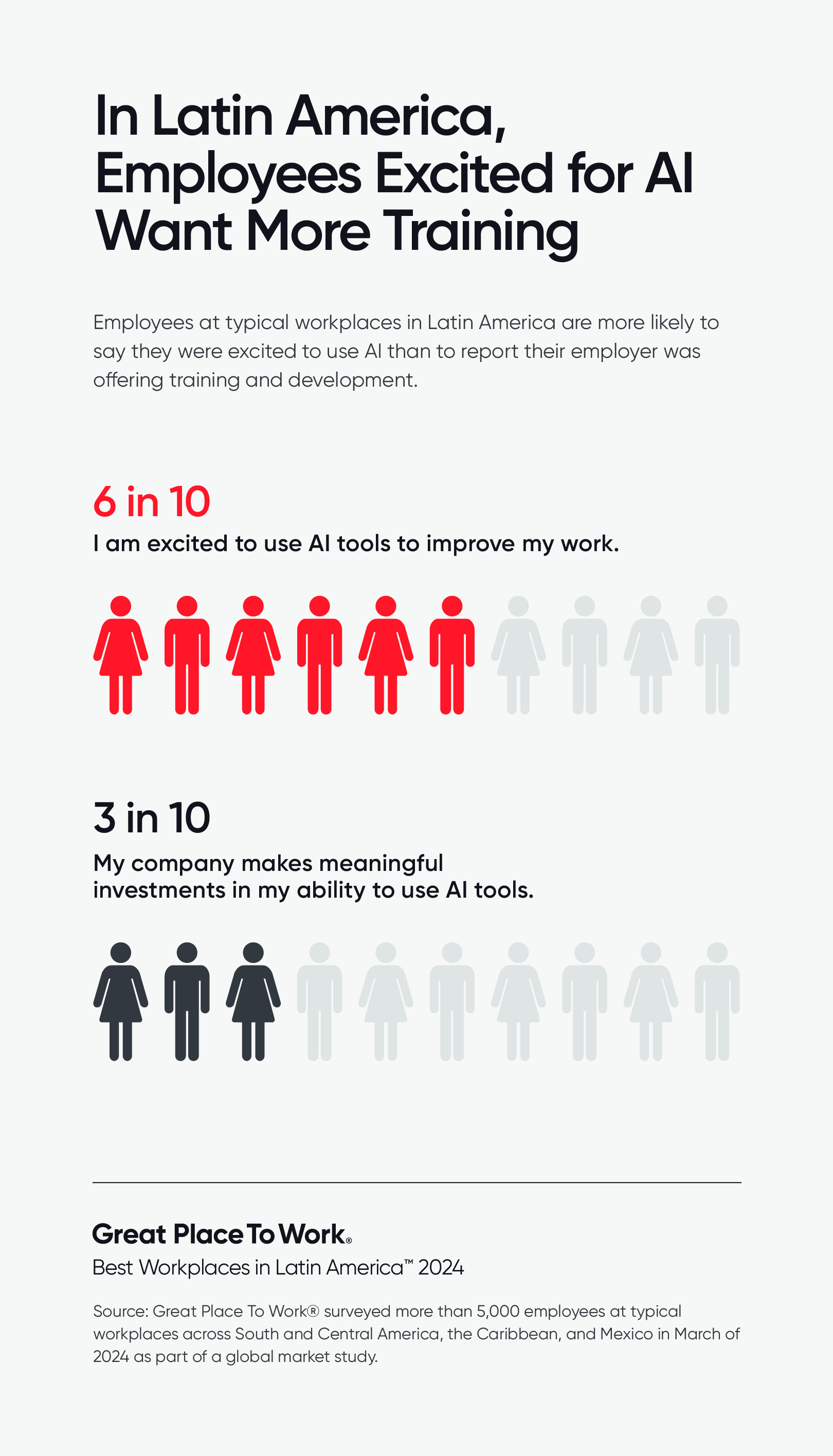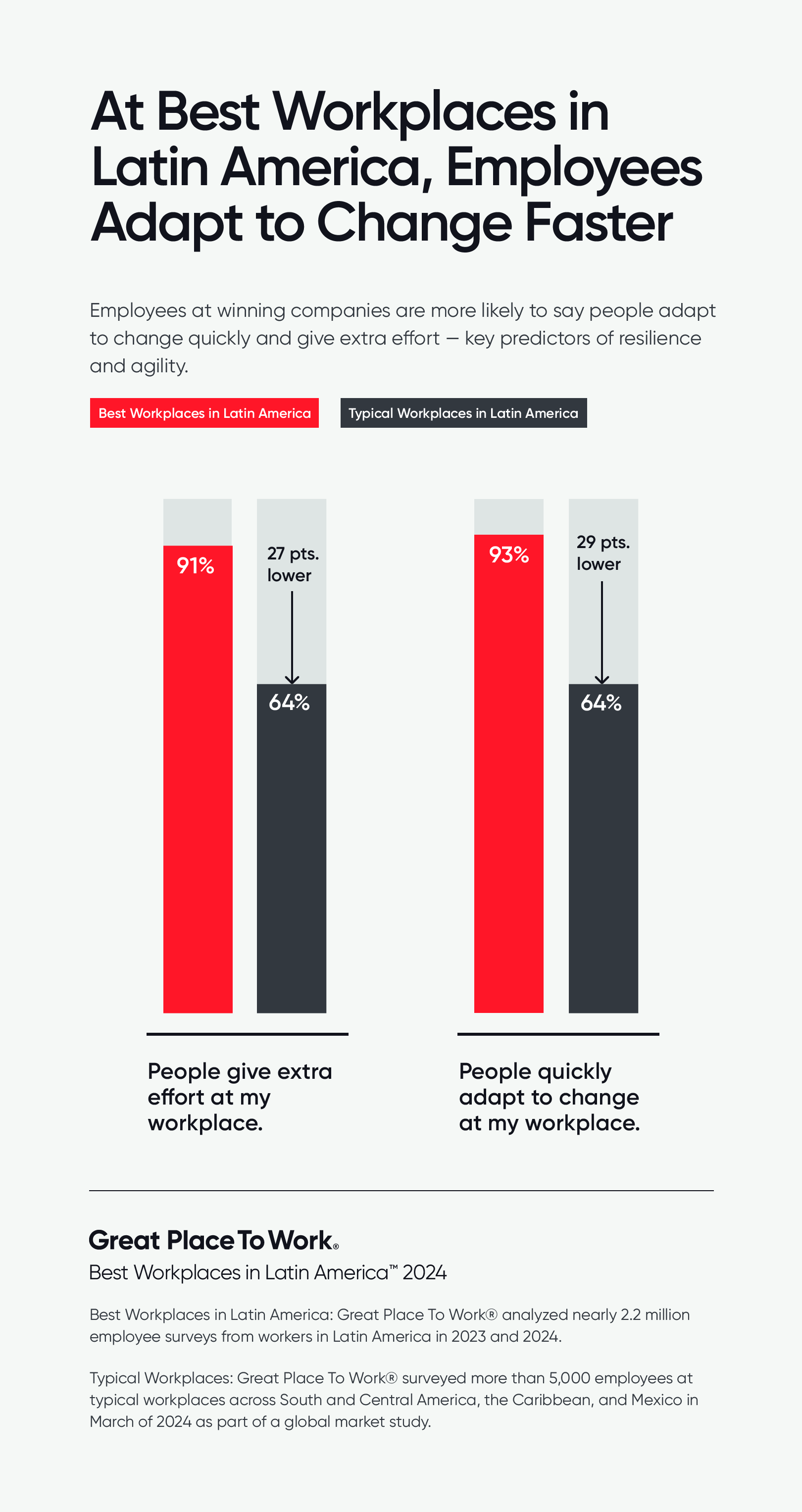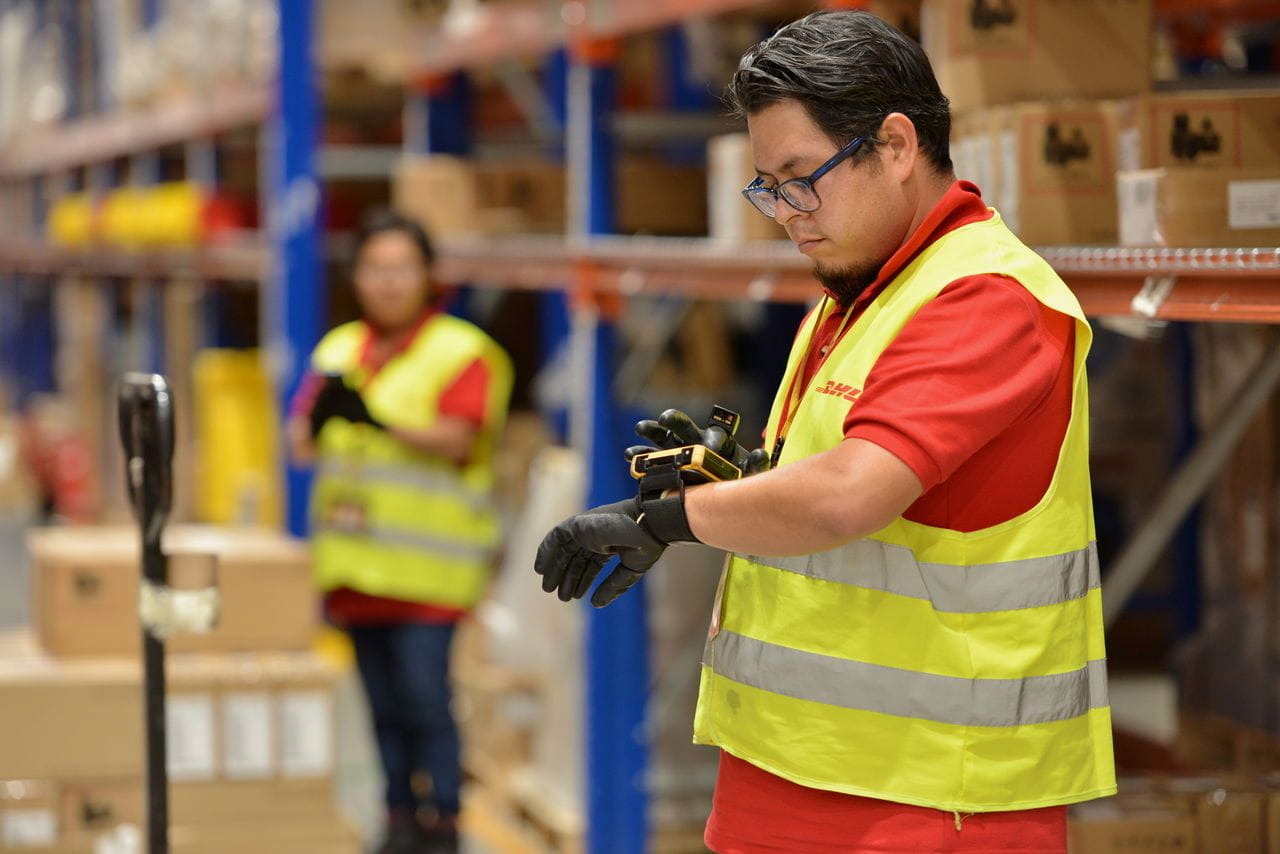AI (Artificial Intelligence), Best Workplaces, Innovation
Six in 10 employees in Latin America are excited to use AI tools in the workplace, but only three in 10 say their employer is investing in developing their AI skills.
Are your employees ready to use artificial intelligence at work?
In Latin America, more than half of employees say they are excited to use AI tools, but only three in 10 say their employer is investing in training them to use AI, according to a Great Place To Work® survey of more than 5,000 employees at typical workplaces across South and Central America, Mexico, and the Caribbean in March of 2024.
While we can expect the number of employees that receive AI training to increase as more companies adopt the technology, some companies will be able to transform and adapt faster than their competitors.

The real differentiator is culture — whether employees resist change or are active participants in innovation. The companies that will be most successful are those that build high levels of trust with employees.
Companies that made the 2024 Best Workplaces in Latin America™ List have taken an early lead, with more employees reporting a culture that quickly innovates and adapts to change.
Nine in 10 employees (90%) at companies on the list said their workplace celebrates people who try new things and develop new processes, even if those efforts end in failure. That’s 31 percentage points higher than the typical workplace in Latin America, where only 59% of employees said the same.
Employees at winning workplaces were also more likely to say they received training and development opportunities — 89% compared with just 59% at a typical Latin American company.
A fair workplace for all
When comparing the experience of employees at a typical Latin American workplace with experiences at the Best Workplaces, the biggest difference comes down to fairness.
Do employees feel that managers play favorites or award promotions and opportunities based on merit? At Best Workplaces, the number of employees who said promotions were fair was 74% higher than at typical Latin American companies.
A sense of fairness is a key ingredient for agile and innovative workplace culture. When workers can’t trust that everyone in the organization has an equal chance to get promoted, to receive special training, or to earn higher wages, they might choose not to give extra effort, or stop collaborating with colleagues. Employees might even resort to playing politics and backstabbing to get ahead, experiences that are 100% higher at typical Latin American workplaces compared with those on the Best Workplaces list.
In a Great Place To Work survey of more than 5,000 employees at typical workplaces across South and Central America, Mexico, and the Caribbean, employees who say people avoid politicking and backstabbing at their workplace were 23% more likely to say people give extra effort at their company and 30% more likely to say people adapt quickly to change.
Low trust workplaces will struggle to keep up with the business performance of competitors who are investing in their employees. At the Best Workplaces, nine in 10 employees (91%) said people give extra effort to get the job done at their company, compared to just over two-thirds (64%) of people at a typical Latin American workplace.
Best Workplaces also have higher numbers of employees who say their colleagues quickly adapt to change (93% vs. 64%).

These employee experiences indicate how quickly a company will be able to take advantage of the opportunities created by AI. Companies with employees who are ready to give extra effort and embrace change are less likely to experience the friction that jeopardizes transformation efforts across the business.
How winning companies build trust
Building trust doesn’t happen overnight. Companies must make investments now to build a culture that can overcome any challenge in the business environment.
Here’s how companies on the Best Workplaces in Latin America list are building trust with employees that will drive faster agility and stronger performance in the AI era:
1. Collect feedback from employees across multiple channels — and then take action.
At Teleperformance, the No. 4 multinational company on the list, HR and operations teams work together to analyze listening data from employee surveys and listening sessions each month to develop an action plan for how the company can improve the employee experience. Listening efforts include the annual Great Place To Work survey, as well as pulse surveys and data from the HR helpdesk.
Efforts to engage with employee feedback create a workplace where employees feel they are included in decision making and that management genuinely works to collaborate on new ideas — important experiences for agility and resilience across the organization.
At the Best Workplaces, eight in 10 employees say management involves them in decisions that affect them, and nine in 10 employees say management collaborates to act on new ideas. At the typical workplace in Latin America, only half of employees, or five in 10, said the same for both experiences.
2. Ensure every employee can innovate and contribute new ideas.
Having meaningful innovation opportunities builds employee trust in leaders. At the Best Workplaces, when employees say they have a lot of opportunities to innovate, they are nearly three times more likely to have confidence in their executive team.
At DHL, the No. 1 multinational company on the list, its Campfire portal allows every employee to suggest ideas to digitize its business, such as simplifying reporting on safety incidents and near-misses.
Frontline staff have also contributed ideas for new tools at DHL Supply Chain, like a mechanism developed at a worksite in Pouso Algere, Brazil which prevented trucks from moving when being loaded and unloaded.
3. Find new ideas from overlooked sources of talent.
To get the best ideas, you must recruit the best talent. That’s hard to do if you overlook segments of the population, such as women or individuals from low-income backgrounds.
Companies like Accenture, the No. 11 multinational on the list, are working to hire and train people from disadvantaged backgrounds with programs like START — a technology training program founded in fiscal year 2014. In the 2022 fiscal year, over 900 people were trained through the program and 113 of them were employed by Accenture.
Teleperformance is focused on helping women thrive across its Peru and Mexico offices. It launched a mentoring program to help high-performing women attain senior leadership positions, and monitored recruitment and training with dashboards to track changes across regions and departments.
Teleperformance has committed to having at least 30% women on its executive committee by 2023. To date, the company’s global workforce is 54% women with 48% of management positions being held by a woman.
How to make the list
Think your company deserves special recognition? Get started here to become eligible for next year’s Best Workplaces honors.











